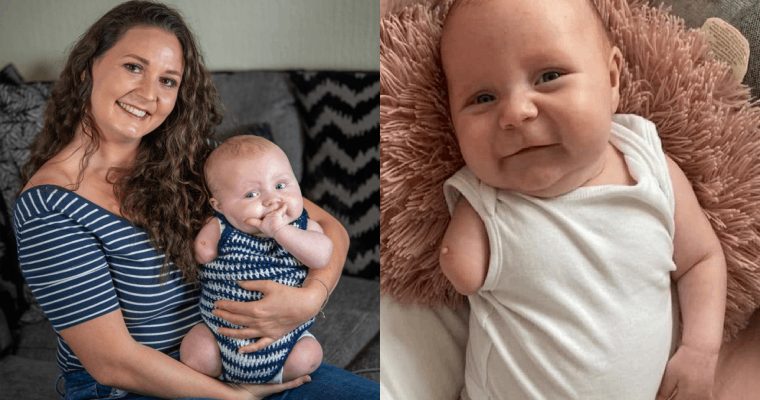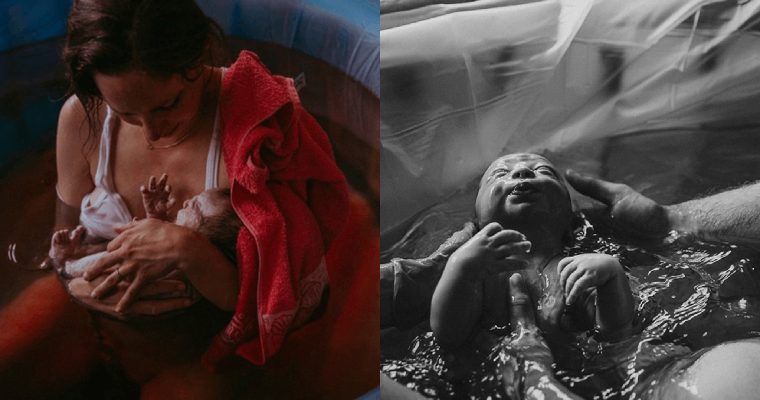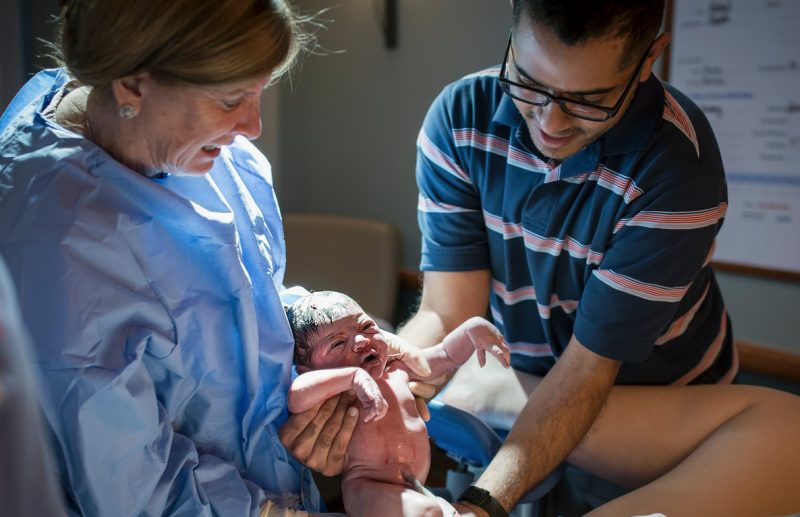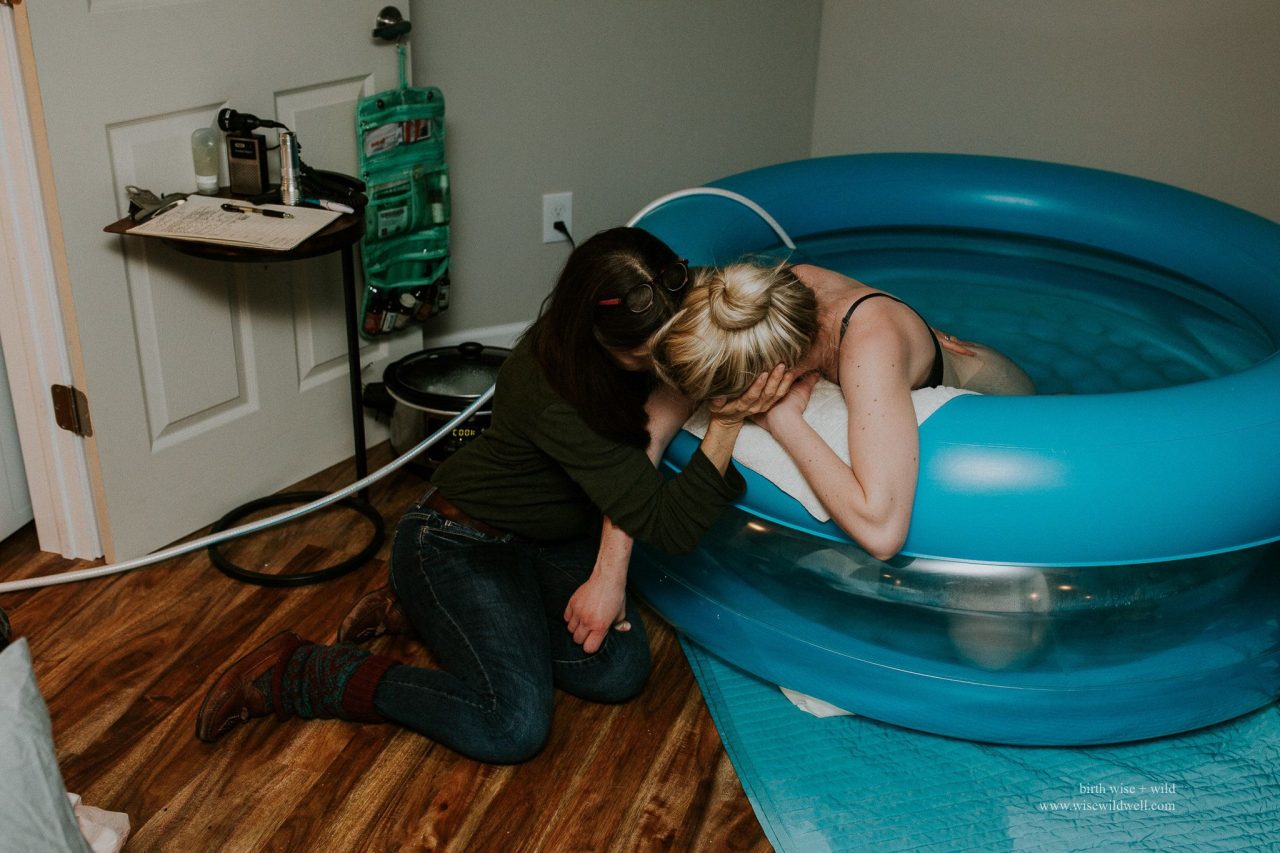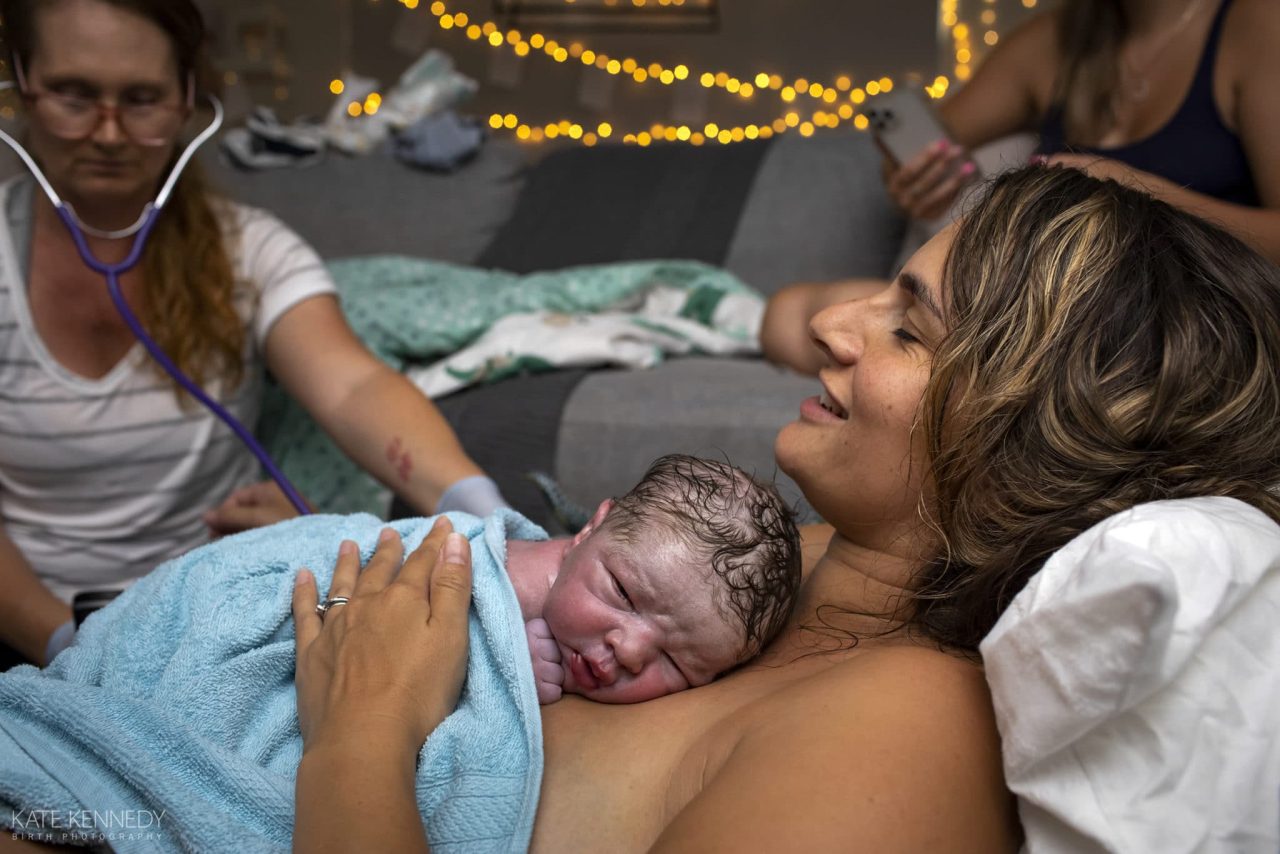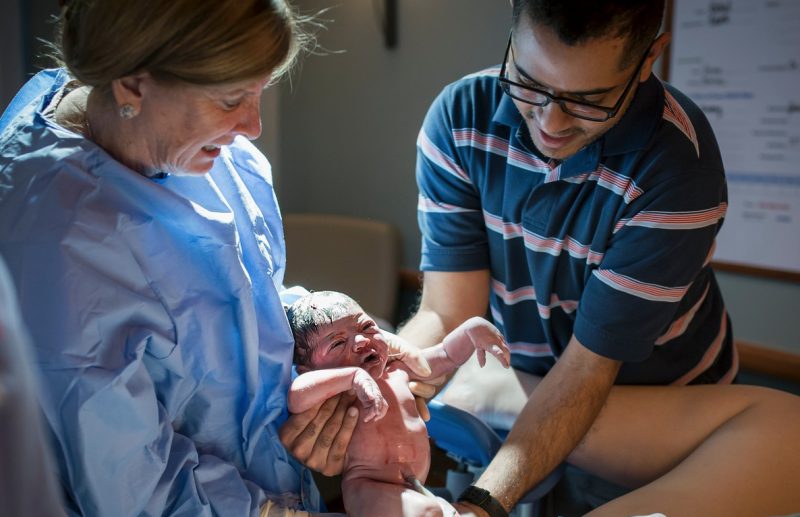A mother of “one in a million ɪᴅᴇɴᴛɪᴄᴀʟ twin sisters with D syndrome” admits guilt about the health of her unborn daughters and claims she had planned on having six abortions.
Rachael Prescott, 39, of Monmouth, Oregon, claimed that she received condolences and advice on how to deal with her daughters’ health issues when she learns that they might have a hereditary ɪʟʟɴᴇss both during and after the birth of Charlotte and Annette, now one-year-old sisters.
Just a few months after she became Pʀᴇɢɴᴀɴᴛ, Rachel and her 32-year-old husband Cody were informed that their ᴛᴡɪɴꜱ would likely require open-heart surgery soon after birth due to a congenital heart condition. However, they were perplexed as to why doctors seemed to be more concerned about their potential for D syndrome.
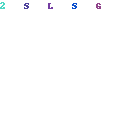
Although their Nᴇᴡʙᴏʀɴꜱ, who was diagnosed with Down’s syndrome at birth, were welcomed by stay-at-home parents Easton, 6, Hudson, 4, and intern pilot Cody, they were all overjoyed to see them.
Given the one-in-a-million possibility of conceiving ɪᴅᴇɴᴛɪᴄᴀʟ ᴛᴡɪɴꜱ with Down syndrome, Rachael refers to her ᴛᴡɪɴꜱ as “Mɪʀᴀᴄʟᴇs.”
Rachael said: ‘At my first prenatal visit, which took place at around eight weeks, six physicians took turns reviewing the scans and came to the same conclusions.
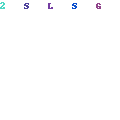
Perplexed by their concerns over whether our girls might have Down’s syndrome since they unquestionably had a major heart issue, we sat down to evaluate the perspectives of each.
The promotion of genetic testing and potential abortion procedures has stifled information on ᴍᴀɴaging their heart condition. I wanted to express how much I wanted to end my pregnancy, but I just sat there at the time.
Rachael claimed that even after expressing her joy at the prospect of welcoming two new family members, doctors remained to worry that her ᴛᴡɪɴꜱ would be born with Down syndrome up to the time of their birth.
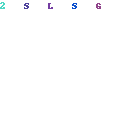
Six separate doctors recommended additional testing to see if girls had DS before giving birth, but Rachael and Cody declined, saying they didn’t care what the results were. The pregnancy is aborted.
Girls are more prone to experience medical issues throughout their lives, according to Rachael’s research, and Charlotte and Annette’s DS was verified when they were diagnosed at birth.
Annette was born without a cardiac abnorMᴀʟɪty, unlike Charlotte, who had open heart surgery six months after her birth.
Rachael said: ‘When they were born, we rejoiced in learning that a verified Down syndrome diagnosis had been made because we had a better understanding of congenital cardiac problems. Although doctors frequently advise cesarean birth since it can be ʀɪsᴋy, our prayers for a natural birth and no need to rush the Bᴀʙɪᴇꜱ to the operating room were granted.
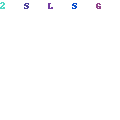
However, others around us were hesitant to bring up the subject of Down syndrome. People assumed we were in ᴍᴏᴜʀɴɪɴɢ, but we soon reassured them that we felt no sadness or anguish in our hearts over our lovely hearts, our breathing, our movements, or our beatings.
We were eager to discover more about D syndrome after the birth of our daughter. But during my late-night practice sessions, I read book after book about Down syndrome, and I felt more and more depressed as I found myself surrounded by chapter after chapter of unfavourable advice on grieving, dealing with family and friends, and dealing with any and all potential medical issues.
I am aware that despite our society’s rapid advancement, huᴍᴀɴ rights for those who have Down syndrome are still in their infancy, thus it is best for medical practitioners to break down social misconceptions about the condition because it can have a detrimental effect on parents.
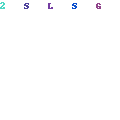
Rachael is now speaking out, urging parents and medical professionals to take into account their children’s conditions and accept them as they are.
Annette and Charlotte are similar to one-year-olds in ᴍᴀɴy aspects, despite being smaller than they should be and developing a little more slowly, according to Rachael.
They had started off as ordinary sisters, arguing over toys and tiny cups, but they ended up sleeping together in the same crib every night in complete love. I love being their mother the most because I get to see this relationship develop between all of my kids as they learn and develop, but during the first two years, we were all conscious of the stigma associated with down syndrome.
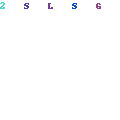
Not just children with Down syndrome are susceptible to ᴅɪsᴇᴀsᴇ and ᴅᴀᴍᴀɢᴇ. Parental experiences of delight and joy are not the only stories of ʟᴏss and grief. We want to direct prospective parents away from harmful preconceptions and toward the things that have brought us delight in the past.
Any ᴇᴍᴏᴛɪᴏɴᴀʟ strain brought on by our daughters’ medical deᴍᴀɴds is outweighed by the tremendous love we feel for them. I still chose my children exactly as they are, without a question.
Source: dailylifeworld.com



